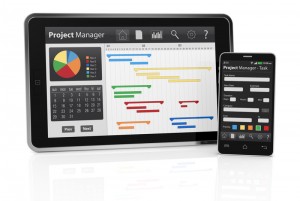 The key to running any company smoothly is to keep meticulous and clear records, and psychotherapy private practices are no exception. Virtually all businesses today operate with an electronic data-keeping system; paper files don’t cut it anymore. More and more private practitioners are moving toward a paperless practice, which includes a professional Electronic Health Record. And advances in technology have created software programs designed for the unique needs of those in the mental health profession.
The key to running any company smoothly is to keep meticulous and clear records, and psychotherapy private practices are no exception. Virtually all businesses today operate with an electronic data-keeping system; paper files don’t cut it anymore. More and more private practitioners are moving toward a paperless practice, which includes a professional Electronic Health Record. And advances in technology have created software programs designed for the unique needs of those in the mental health profession.
An efficient EHR can reduce no-shows, provide instant and secure information to authorized patients, and overall contribute to a well-kept and professional business environment. In other words, a good EHR is nothing to skimp on!
The purpose of this post is not to provide a comprehensive look at every EHR on the market (as there are hundreds), but instead aims to identify important features and criteria in choosing a system and also to analyze some of the pros and cons of a few prominent brands.
Here are a few of the most important factors and features to consider when looking into a new EMH software for your therapy practice:
1) Basic features: these include to-do lists/ task management sub-systems, billing, scheduling, and patient appointment reminders
2) Price (many offer a free 30-day trial with limited features)
3) Client Portal (this would allow your clients to login to view their payment history, appointment history, schedule appointments, or print out a superbill)
4) Data Reports (a detailed analysis of revenue, percentages, tracking referral sources and history, etc.)
5) Single Provider vs. Multiple Provider: (can multiple people or groups use the same system? Can records overlap?)
Now let's look at a handful of some popular Electronic Health Record systems:
TheraNest
A major push for TheraNest is that it is workable for multiple providers in multiple locations. It also provides highly detailed analyzed reports to track data over time.
TheraNest does offer a client portal, but it's an add-on, so you have to upgrade and pay more for it. They offer a free 30-day limited trial (though it doesn't include client reminders during that time).
Simple Practice
Simple Practice is one of the most popular EHRs today, with most supporters praising its highly efficient and clear billing capabilities. Whether your customers pay full-fee or with insurance, Simple Practice can make it easy for you to keep everything in order.
While Simple Practice is top rated for a reason, a disadvantage of it is that it doesn't have a feature for multiple providers. And it's customer service reviews are relatively high, though some may wish they offered 24/7 technical support instead of just during business hours.
TherapyNotes
This system is known for its excellent and responsive customer support, user-friendly interface, high security measures, and low cost. A possible downside of TherapyNotes is its limited billing features, including its inability to monitor secondary billing insurance. It also lacks a client portal.
Click here for a more detailed review of dozens of mental health software systems: http://www.capterra.com/mental-health-software/
What are YOUR experiences with EHRs? What have you found that you like (and don’t like!) about different systems? I'd love to hear from you!
Get practice tips and blog updates in your inbox. Sign up for the Private Practice Toolbox Newsletter here.
Join my Private Practice Toolbox Facebook group and connect with 2700 therapists around the globe in 2 simple steps: 1) Click request to join the group and 2) Fill out this brief questionnaire before you'll be added to the group.


As healers, we genuinely like to do our work. Guiding clients through the therapy process and seeing them make progress is why we do what we do. But if you're in private practice, you know there's a lot going on in the back end and that it's crucial to run an efficient and organized business.